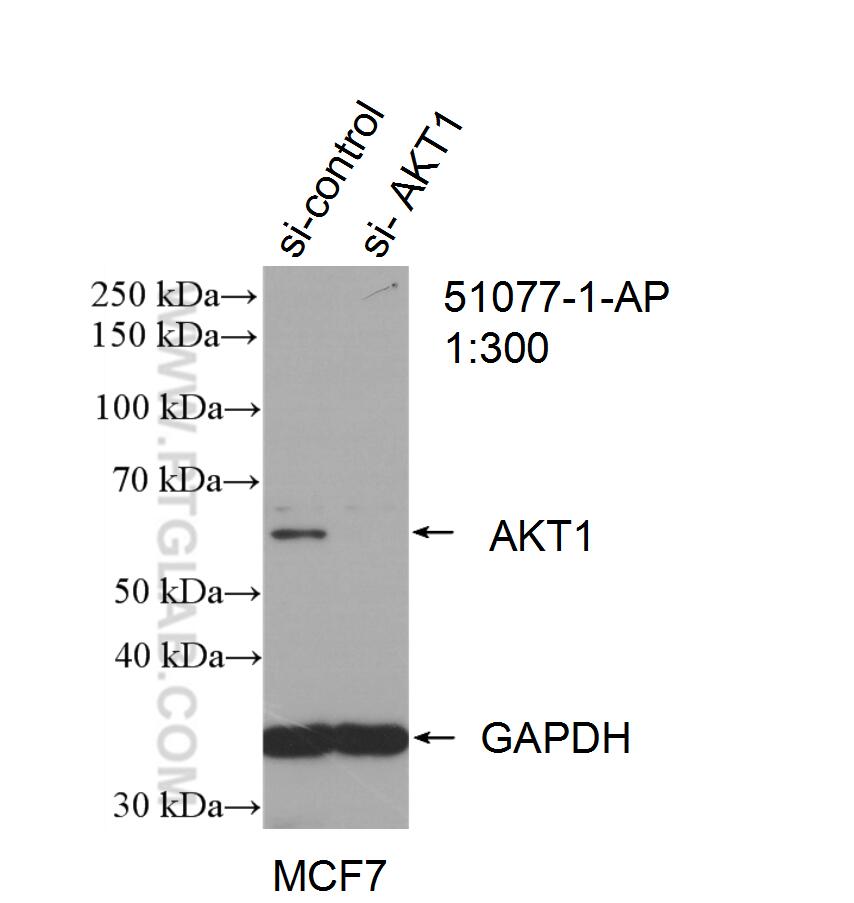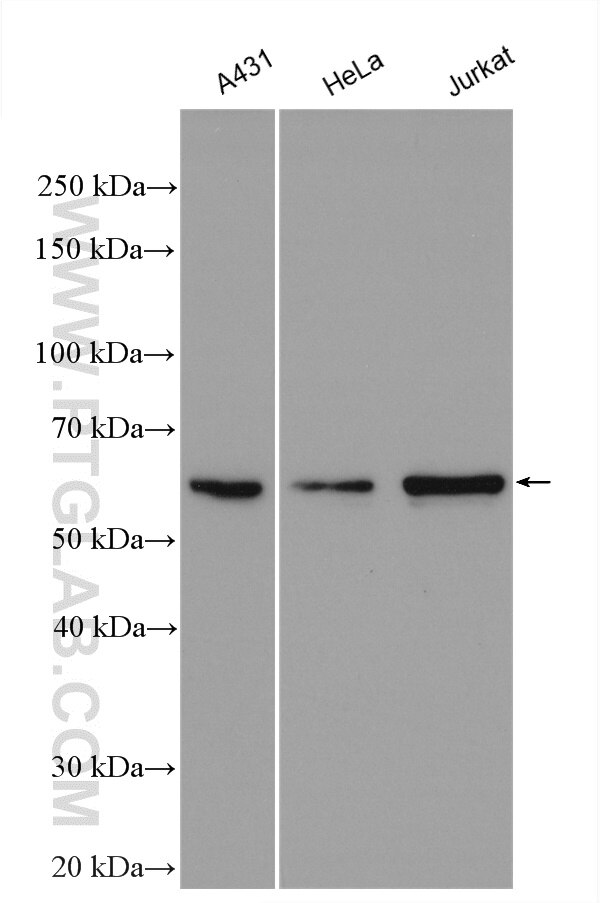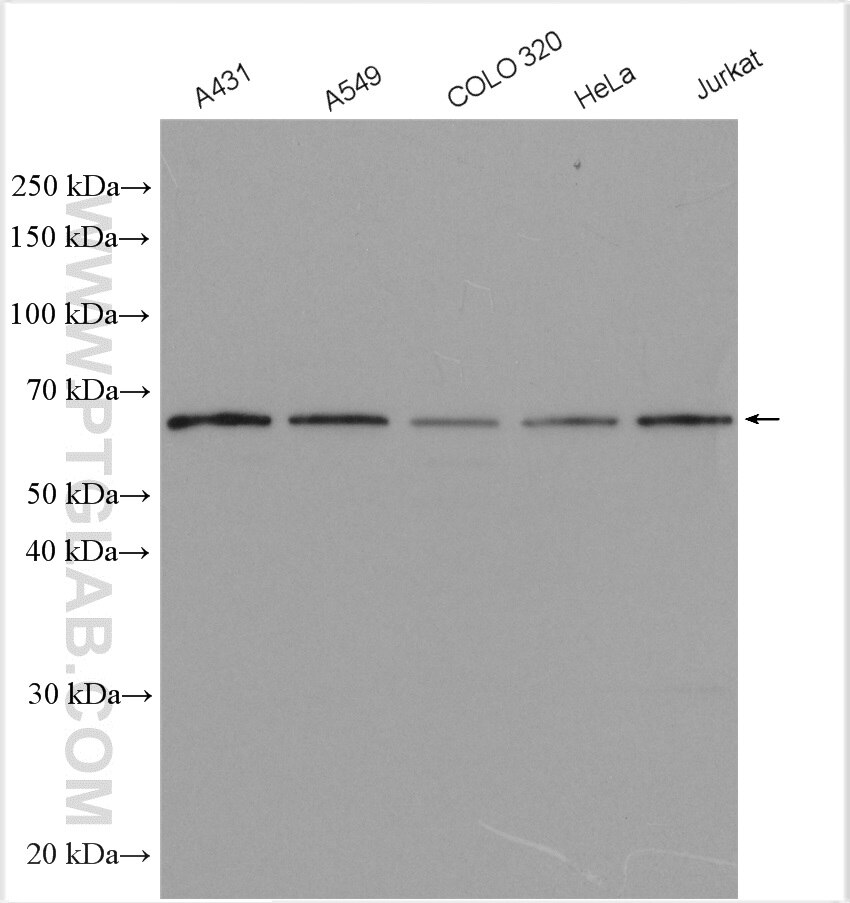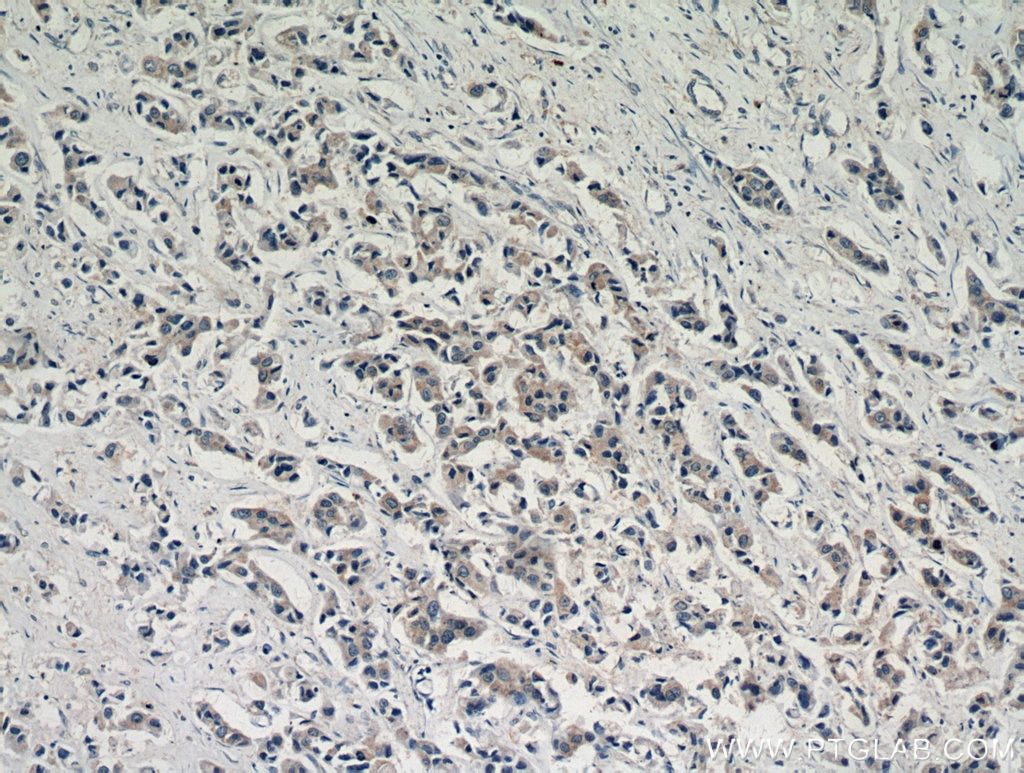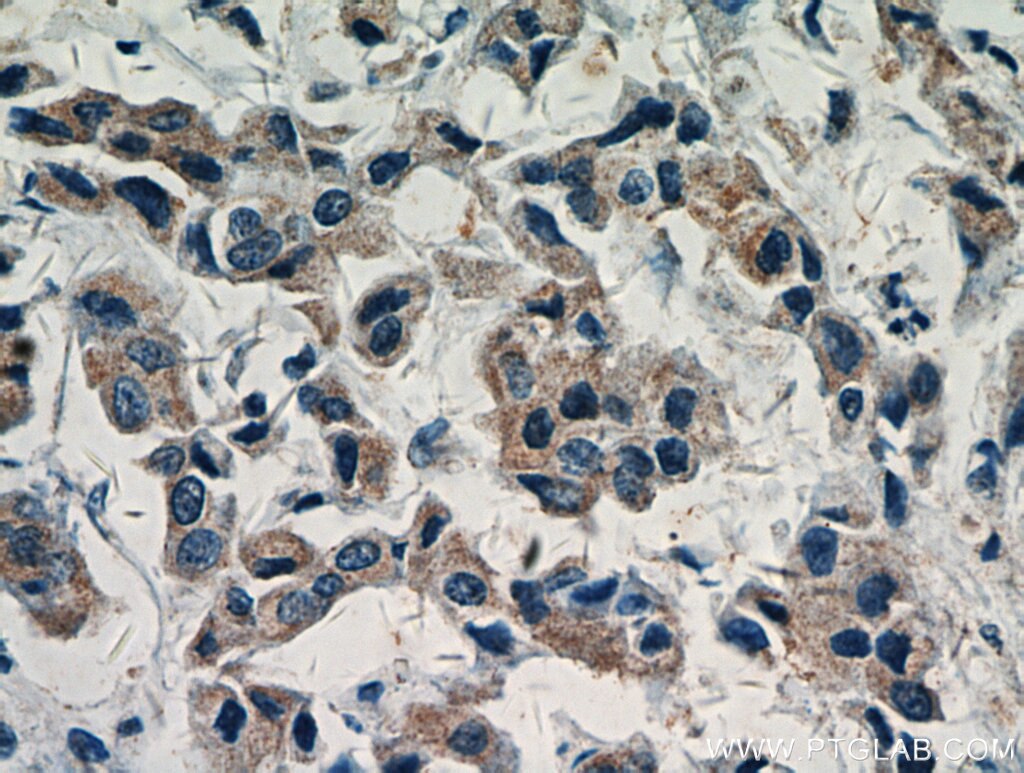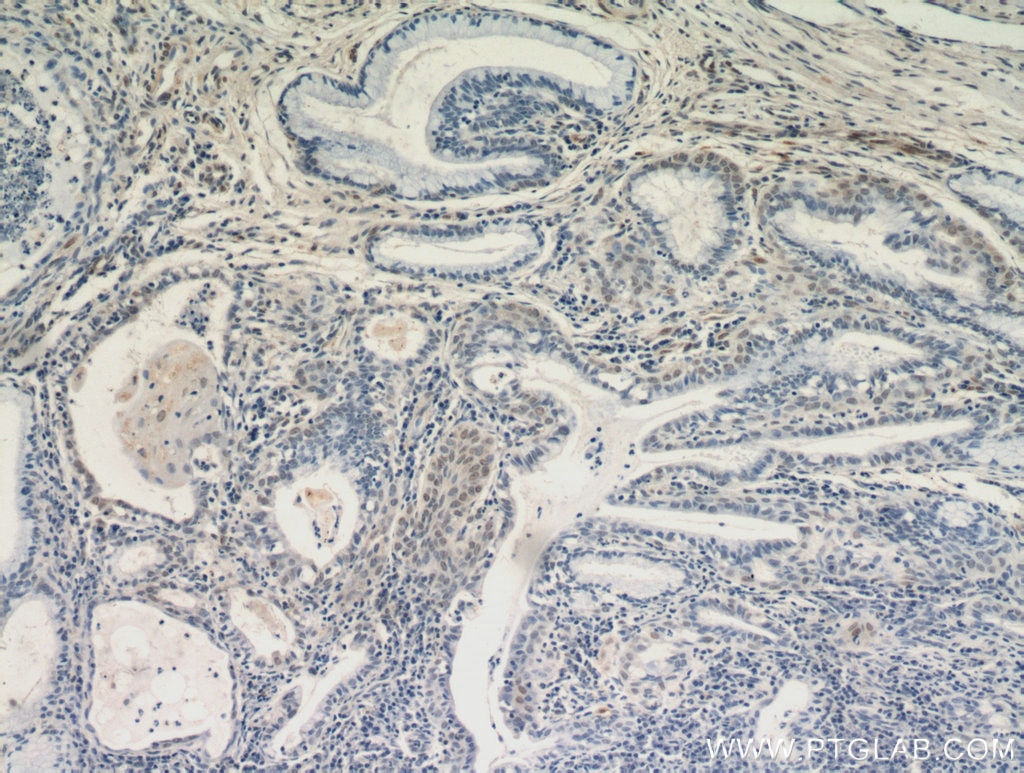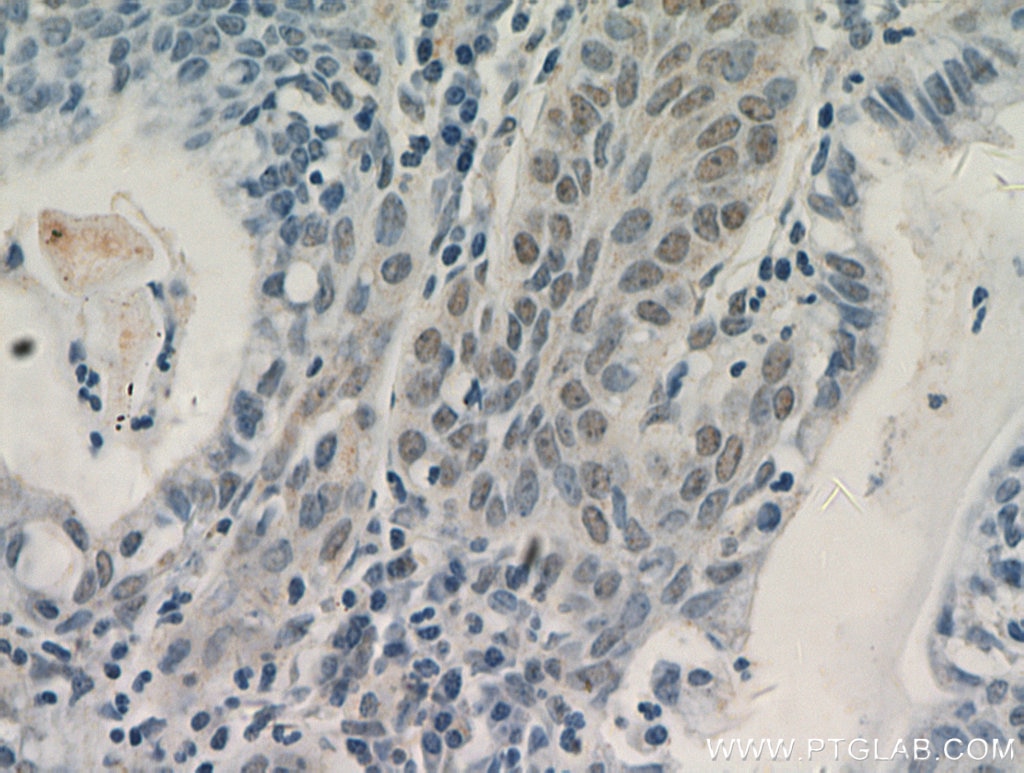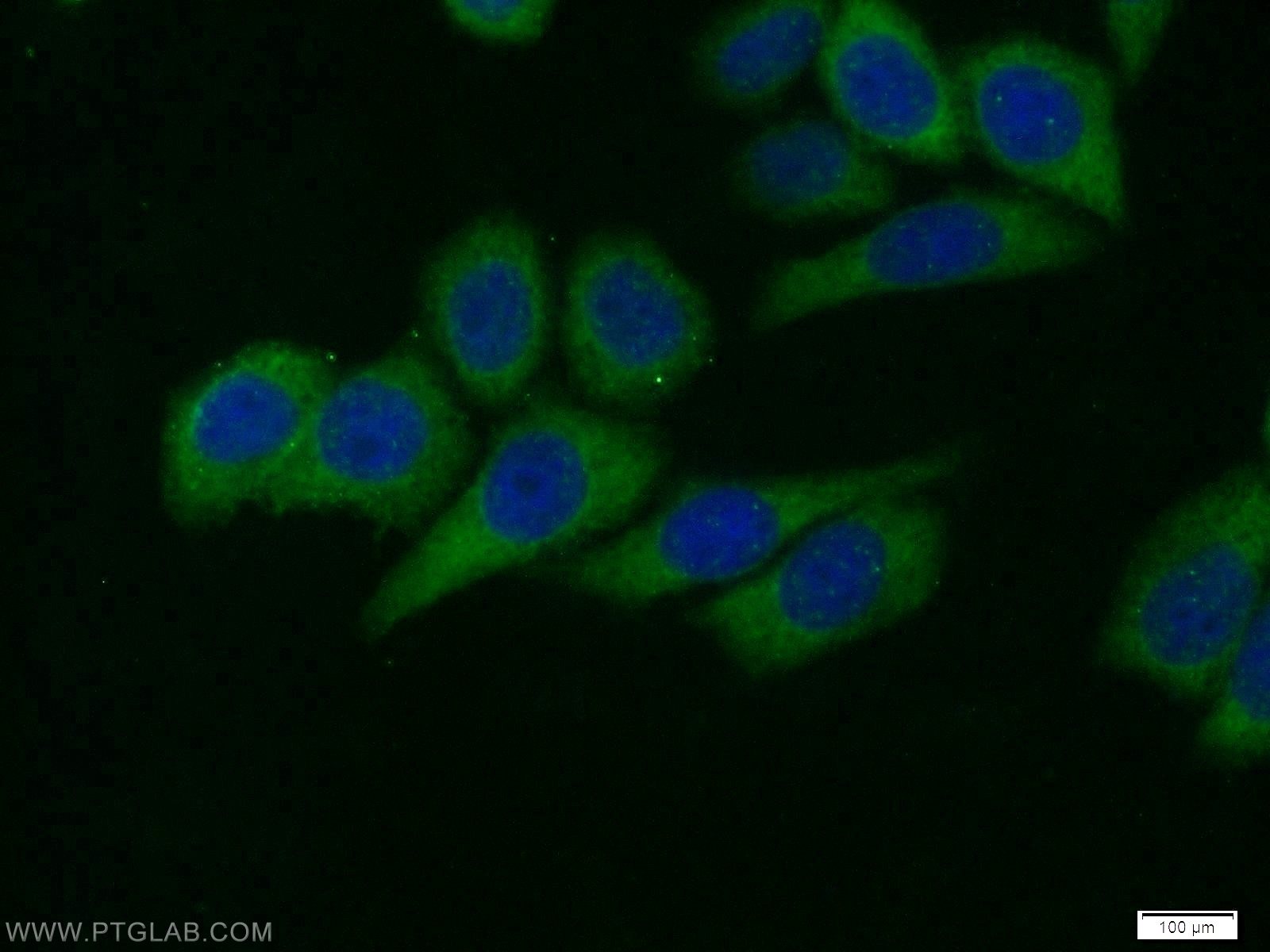- Phare
- Validé par KD/KO
Anticorps Polyclonal de lapin anti-AKT
AKT Polyclonal Antibody for IF, IHC, WB, ELISA
Hôte / Isotype
Lapin / IgG
Réactivité testée
Humain et plus (2)
Applications
WB, IHC, IF, ELISA
Conjugaison
Non conjugué
N° de cat : 51077-1-AP
Synonymes
Galerie de données de validation
Applications testées
| Résultats positifs en WB | cellules A431, cellules A549, cellules COLO 320, cellules HeLa, cellules Jurkat, cellules MCF-7 |
| Résultats positifs en IHC | tissu de cancer du sein humain, tissu de cancer du col de l'utérus humain il est suggéré de démasquer l'antigène avec un tampon de TE buffer pH 9.0; (*) À défaut, 'le démasquage de l'antigène peut être 'effectué avec un tampon citrate pH 6,0. |
| Résultats positifs en IF | cellules HeLa |
Dilution recommandée
| Application | Dilution |
|---|---|
| Western Blot (WB) | WB : 1:1000-1:8000 |
| Immunohistochimie (IHC) | IHC : 1:20-1:200 |
| Immunofluorescence (IF) | IF : 1:10-1:100 |
| It is recommended that this reagent should be titrated in each testing system to obtain optimal results. | |
| Sample-dependent, check data in validation data gallery | |
Applications publiées
| WB | See 23 publications below |
| IHC | See 1 publications below |
Informations sur le produit
51077-1-AP cible AKT dans les applications de WB, IHC, IF, ELISA et montre une réactivité avec des échantillons Humain
| Réactivité | Humain |
| Réactivité citée | rat, Humain, souris |
| Hôte / Isotype | Lapin / IgG |
| Clonalité | Polyclonal |
| Type | Anticorps |
| Immunogène | Peptide |
| Nom complet | v-akt murine thymoma viral oncogene homolog 1 |
| Masse moléculaire calculée | 56 kDa |
| Poids moléculaire observé | 56-62 kDa |
| Numéro d’acquisition GenBank | BC084538 |
| Symbole du gène | AKT1 |
| Identification du gène (NCBI) | 207 |
| Conjugaison | Non conjugué |
| Forme | Liquide |
| Méthode de purification | Purification par affinité contre l'antigène |
| Tampon de stockage | PBS avec azoture de sodium à 0,02 % et glycérol à 50 % pH 7,3 |
| Conditions de stockage | Stocker à -20 ℃. L'aliquotage n'est pas nécessaire pour le stockage à -20oC Les 20ul contiennent 0,1% de BSA. |
Informations générales
The serine-threonine protein kinase AKT1 is catalytically inactive in serum-starved primary and immortalized fibroblasts. AKT1 and the related AKT2 are activated by platelet-derived growth factor. The activation is rapid and specific, and it is abrogated by mutations in the pleckstrin homology domain of AKT1. It was shown that the activation occurs through phosphatidylinositol 3-kinase. In the developing nervous system AKT is a critical mediator of growth factor-induced neuronal survival. Survival factors can suppress apoptosis in a transcription-independent manner by activating the serine/threonine kinase AKT1, which then phosphorylates and inactivates components of the apoptotic machinery.
Protocole
| Product Specific Protocols | |
|---|---|
| WB protocol for AKT antibody 51077-1-AP | Download protocol |
| IHC protocol for AKT antibody 51077-1-AP | Download protocol |
| IF protocol for AKT antibody 51077-1-AP | Download protocol |
| Standard Protocols | |
|---|---|
| Click here to view our Standard Protocols |
Publications
| Species | Application | Title |
|---|---|---|
Elife Binding blockade between TLN1 and integrin β1 represses triple-negative breast cancer. | ||
Front Oncol Low Expression Levels of SLC22A12 Indicates a Poor Prognosis and Progresses Clear Cell Renal Cell Carcinoma. | ||
Biomed Pharmacother α-Terthienyl induces prostate cancer cell death through inhibiting androgen receptor expression. | ||
Sci Rep Aronia melanocarpa polysaccharide ameliorates inflammation and aging in mice by modulating the AMPK/SIRT1/NF-κB signaling pathway and gut microbiota | ||
Front Cell Neurosci Healthy Serum-Derived Exosomes Improve Neurological Outcomes and Protect Blood-Brain Barrier by Inhibiting Endothelial Cell Apoptosis and Reversing Autophagy-Mediated Tight Junction Protein Reduction in Rat Stroke Model. | ||
J Cell Biochem Combined detection of estrogen and tumor markers is an important reference factor in the diagnosis and prognosis of lung cancer. |
